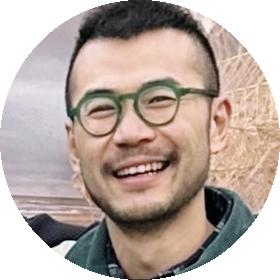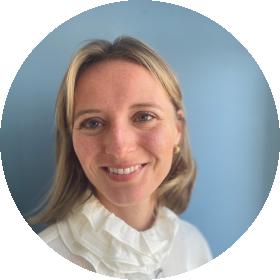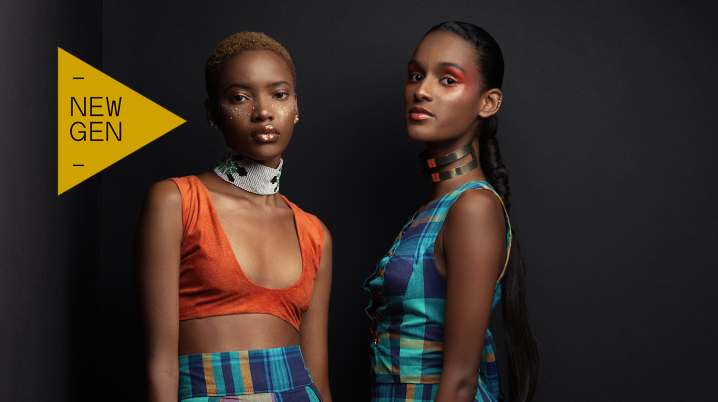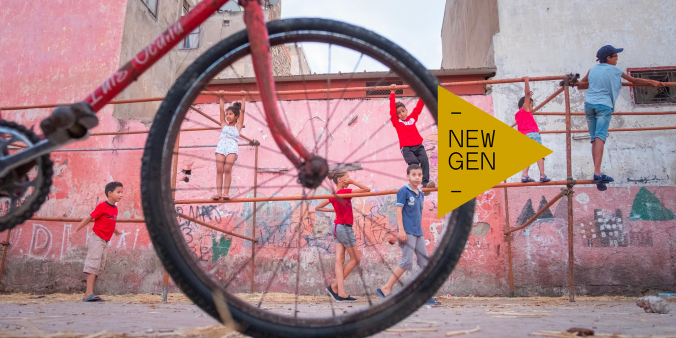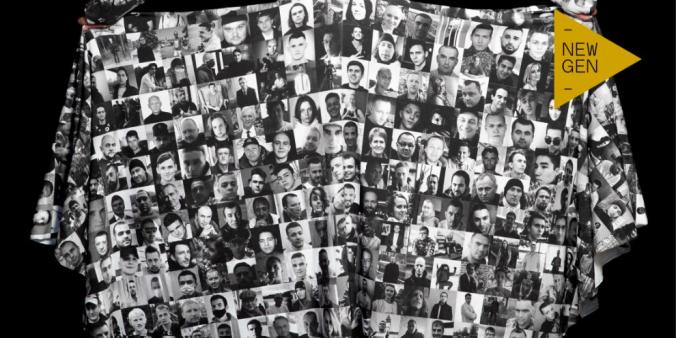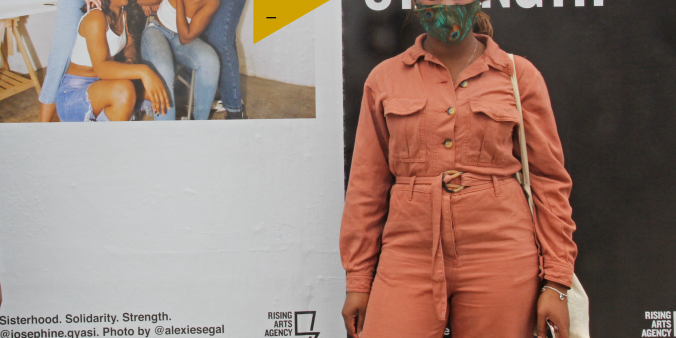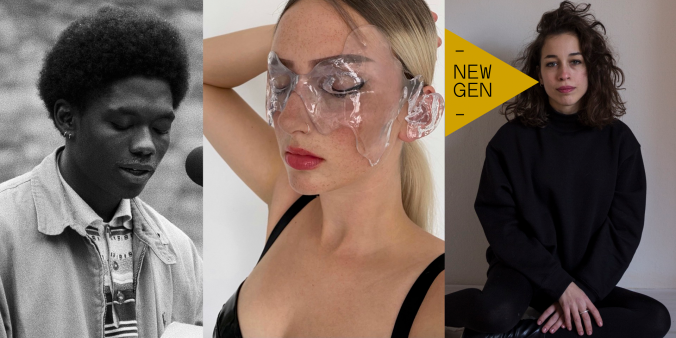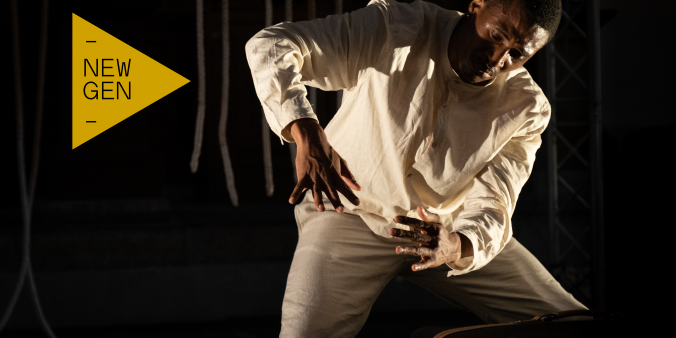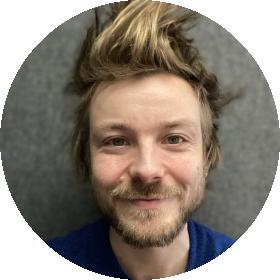
DutchCulture asked 6 journalists from around the world to report on the ripples created by young creatives, makers, artists, or cultural professionals in their cities. In this series of articles, we will be travelling to Warsaw, Casablanca, Paramaribo, Lyon, Shanghai and Bristol to see the world from the perspective of a new generation of artists and cultural professionals. What is specific about the way they shape and create their work? What themes are they putting forward and what's their take on working across borders?
Episode #4: Paramaribo
Audry Wajwakana is a Surinamese journalist and creative writer specialising in art and culture. In her writings, she brings art, culture, entertainment and history to bear on everyday life. Although some of the young Surinamese artists in this article have limited or no access to professional education to develop their passion the way they would like, it doesn’t stop them from pursuing their dreams. Still, a wider approach is called for to give everyone equal opportunities. She sketches an image of how the young generation of creatives in their twenties express their passion.
“Suriname seems a bit limited in terms of opportunities, but that shouldn't stop you from pursuing your talents. Especially during the COVID-19 situation, I started using more social media to be seen," says video director Shellen Arga (23). The massive developments in technology and digital fields have sparked a notable trend worldwide over the last two decades. Many young people, especially in Suriname, are involved in various art forms. Does it automatically mean that it is easier for this generation of young creatives to collaborate and pursue their passion? How do they deal with the challenges that come their way, such as a lack of formal education? To answer these questions, I spoke to some rising young artists from different disciplines striving to make a name for themselves.
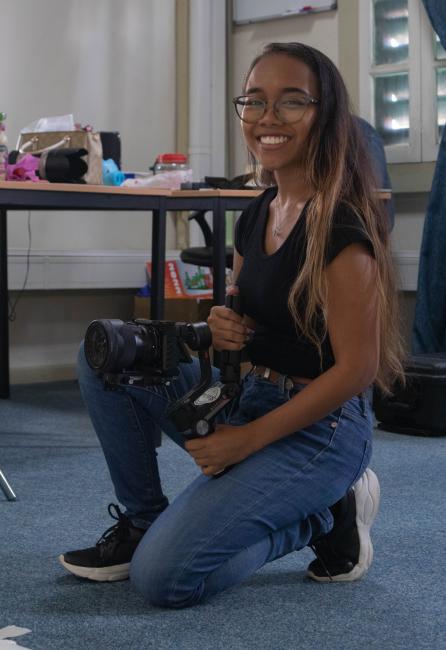
Creative Development
There are various private organisations that stimulate creative and artistic development among children and youngsters through creativity labs in the various neighbourhood centres. However, this is not yet sufficiently accessible to all young people, particularly those from disadvantaged neighbourhoods. Still, this doesn’t stop many from discovering and further developing their talents, such as urban dancer Travis Nandalall (27). I find him in CoD@nCo, a well-known dance studio in North Paramaribo, where he is practising with another dancer. The exercise is interrupted for the interview.
“Dance is more than a hobby for me. I really enjoy it and want to make it a full-time profession,” says Nandalall. He discovered his passion for dance around the age of eleven when hip-hop, dancehall, breakdance and other urban dance styles became popular and formed a dance group with friends. They followed the moves of older dancers or copied them from music videos, where they made it their own through various dance battles and events. “When I got a little older, I came into contact with the dance family of CoD@nCo where I was allowed to attend lessons by foreign trainers.” Now he also gives dance lessons to children. He develops and participates in various art projects and events through the studio. He is also connected to @TeamMMPROD, a group of individuals who are each on their own journey but are bound by a mutual passion to create.
Self-study
Like Arga and Nandalall, fashion designer Meredith Joeroeja (25), visual artist Winston Vola (26) and musician Shavero Ferrier have immersed themselves in their passion through self-study. Others went to formal art schools, like Maggie Peneux (23) who completed her four-year study at the Nola Hatterman Art Academy in 2020. Her friend Fabio Nojoredjo, who completed his art education in the same year, assisted the well-known artist André Sontosoemarto (60) in various projects. As one of the few and older-generation street artists, Sontosoemarto wants to retire - but not before transferring his knowledge and experience of street art to young people. Peneux and her friend were eventually accepted by the senior artist as his protégés. “Despite the financial-economic situation in our country and the pandemic, things are going surprisingly well for us. André is a good teacher and friend,” she says. Peneux is grateful for his professional guidance; everything she learns from him helps build a strong foundation to continue as an artist.
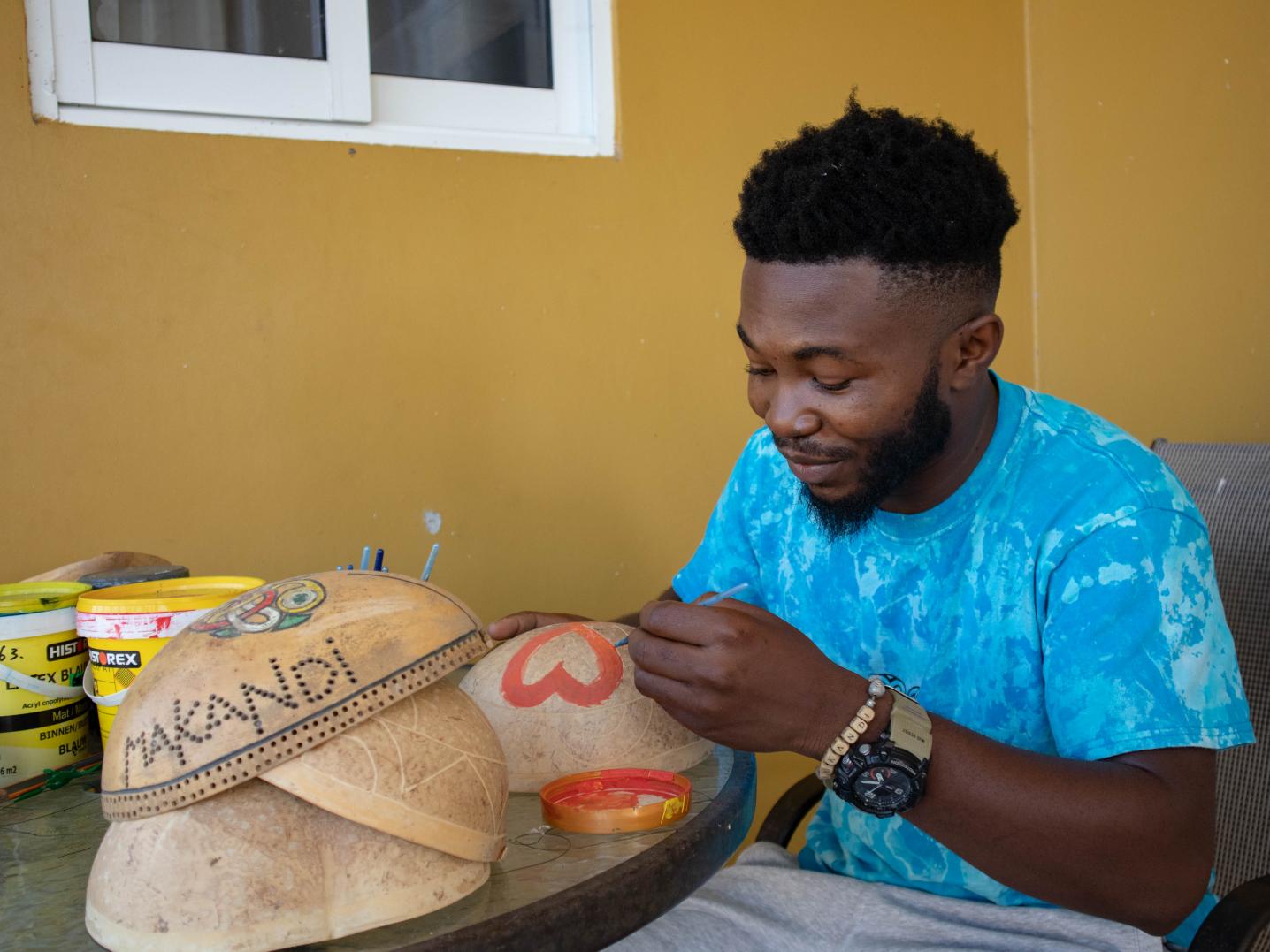
Surprisingly, the corona crisis did not influence the artists that much. Even though dance schools had to shut their doors, Nandalall continued to exercise with Panamanian dance trainer Joel Cordoba, who was stranded in Suriname following the outbreak of the pandemic. However, Joeroeja, who has been in the fashion business for seven years and has won several fashion awards, admits that she misses the whole energy of fashion shows and travel. “But you can't keep focusing on something you can't change, otherwise you'll get stuck. I just continued in what gives me pleasure: creating. My motivation is to always work on improvement,” she says. During the pandemic, the fashion designer shifted her focus to photography to create more content for her social media platforms. For her latest collection Sunset, launched in early February, she photographed the models herself. She also did a fifteen-minute behind-the-collection video. She finds her inspiration in nature and her culture. Joeroeja is a mix of Afro-Surinamese and indigenous descent, which is reflected in her unique designs. Having built up a strong network in recent years, for the past three years she has been able to share her knowledge by giving workshops to indigenous and Maroon women in the country’s inlands. International funds finance these training courses.
Collaborations
For artist Vola, art is a form of meditation. Alongside his studies in architecture, he has developed an artistic practice in painting and graphic design. Before the outbreak of COVID, he had also expanded his creativity by launching the fashion design brand Makandi. Makandi is a Saramaccan (a Maroon community in the interior of Suriname) word meaning ‘together’. “An outsider who enters the village will always receive a warm welcome,” explains Vola. Makandi is a cultural translation of helping each other, which he experienced in his native village and brought to the city. For his fashion designs, he uses tembe art, typical for the Maroon tribes: geometric patterns in artistic expressions with specific meanings, used as motifs on doors, combs, cloths, but also on calabashes. He prints these patterns on calabash bags and T-shirts, as well as his own graphic designs. By promoting art products from other creatives on his social media under the Makandi brand, he hopes to build a platform for new kinds of collaborative ventures between artists.
Joeroeja recently started an unplanned collaboration with the popular Surinamese-French singer and business-minded Ray Neïman, who lives in France. Her latest designs are included in his newest music video. The collaboration was so pleasant that they are determined to carry on. Arga's approach during the pandemic was to follow other filmmakers on social media and engage in dialogue about their work.
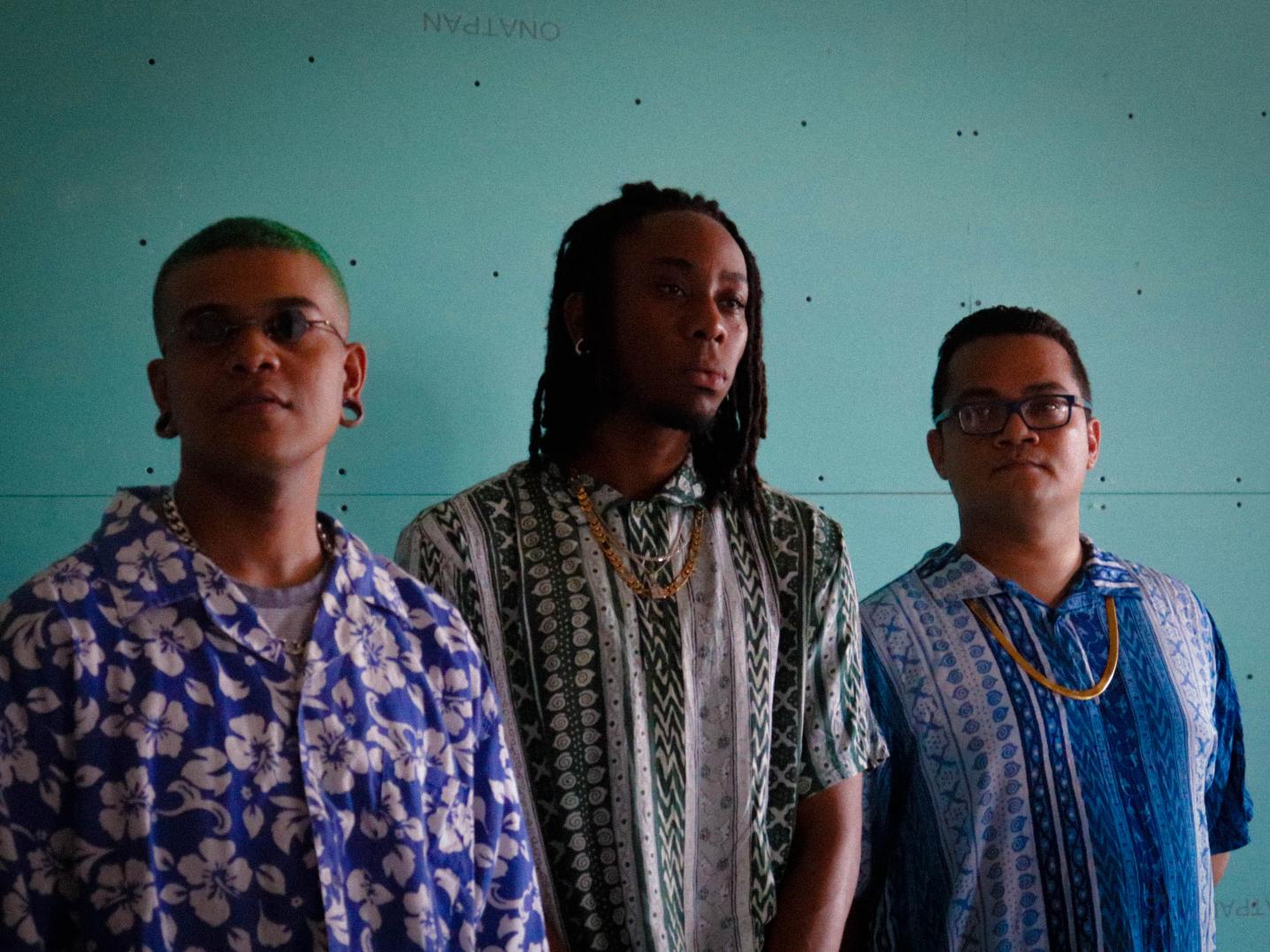
International ambitions
Thanks to these media, all artists were able to share their creativity with the world. Another thing they have in common is their ambition to develop an international career. During the pandemic, Arga released her debut documentary titled Evie's Story (2021), about a woman who died of breast cancer, together with Roger Kadir (24). To their great surprise, but thanks to many positive reviews, RBU TV (Rukun Budi Utama TV) invited the makers for an interview and arranged to air the documentary on Den Haag TV.
For local fame, Ferrier went around to various bars and cafés asking if they could perform there. He is a member of the hardcore band Luguber, which was founded in 2014 and further consists of Akeem Smith (23) and Regillio Padma (33). As the only Surinamese participant, the band stood out during the first Wacken Metal Battle Caribbean 2016, organised by Unkie's Open Air Rockfest. “We worked hard to be noticed, and as a result, we did stand out. We were then approached by the Dutch record label TCBYML to release our first EP Het Pad," he says. This collaboration gave the band some name recognition in Europe.
Challenges
Joeroeja is not discouraged by the fact that Suriname currently has no fashion industry. She sees her country as a base, where she can make mistakes and learn from them before venturing out into the big wide world. “Especially since I haven’t had a formal fashion education, and I don’t even know how the fashion industry really works.” One challenge she now encounters is that, although it’s easy to send her designs to the Netherlands and the USA, distribution is very difficult in the Caribbean region, simply due to the lack of regional flights. Another obstacle is that many fabrics are of low quality in Suriname. Because Joeroeja is a lover of all things natural, she takes the environment into account when designing, preferring to manufacture sustainable and environmentally friendly products. She often has to import them herself.
Nandalall misses a wider appreciation for art in Surinamese society. Everyone is enthusiastic about every performance, but the financial reward leaves something to be desired. “People often see a dance performance of a few minutes, without realising that it required a lot of time and hard work to create such a rock-solid choreography," he says. According to Peneux, the general public is still insufficiently aware of what art means. Joeroeja: “The fact that I am still in the industry has everything to do with my ultimate goal. I believe that if something is cut out for you, it will work out in the end. I experience that over and over again.”
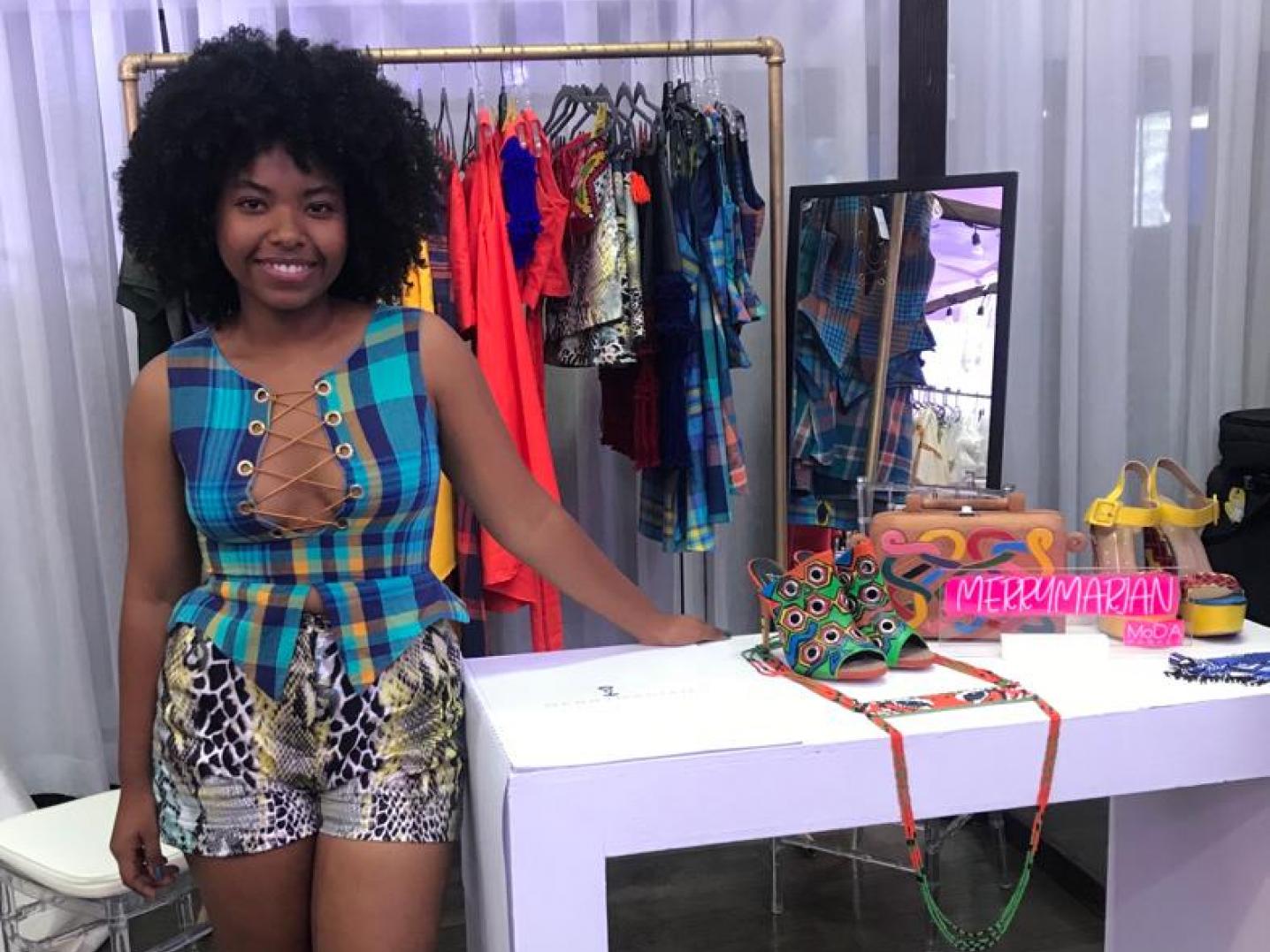
Necessity
Most creative development in Suriname is driven by necessity: by young people taking the initiative to improve their situation. Art education, which is currently offered only briefly at school, should therefore be approached more broadly. Although some private and governmental initiatives have taken place, such as the creativity labs mentioned above, none of them were of a long-term nature. One example of such a lab is the Mission 21 pilot project by artist and coach Miguel Keerveld, which took place in 2018. Together with other artists from various disciplines, Keerveld offered art practices to more than 130 young people to help them discover their own talents and thereby encourage them to actively participate. Setting up permanent initiatives with the help of private and public funding will not just raise the art level in Suriname, but also contribute to cultivating an appreciation for art.
